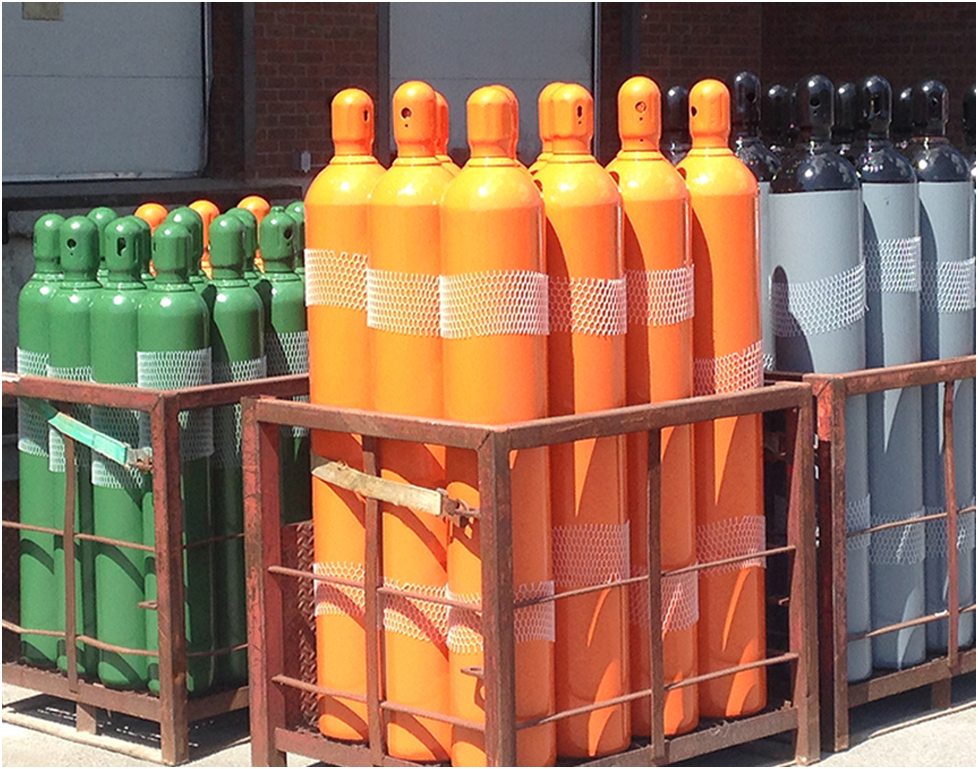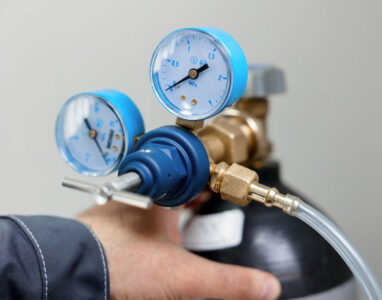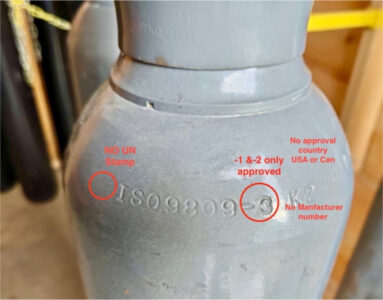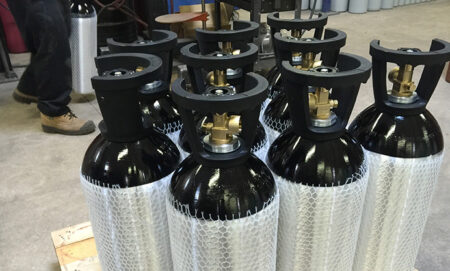High-pressure gas cylinders are essential for various industries, from healthcare and manufacturing to food and beverage services. These cylinders store and transport gases under extreme pressure, making regular maintenance and testing crucial for safety and efficiency. Ignoring warning signs can lead to costly repairs, safety hazards, or serious accidents.
At Certified Cylinder Services Inc., our hydrostatic and ultrasonic testing techniques guarantee that your cylinders meet Transport Canada’s strict safety standards. Below are five definite ways to tell whether a high-pressure gas cylinder is.
1. Visible Damage or Dents
If the tank surface has dents, scratches, or other types of deformities, its structural strength is compromised. These damages can occur when the tank is transported, handled, or stored. They will negatively affect your pyrotechnic devices’ ability to hold high-pressure gas safely. If any of them occur when you notice a physical damage, send your cylinder off for a qualified inspection.
2. Corrosion or Rust
If you see rust or discoloration on a cylinder, this is a sign of problems that cannot be overlooked. Corrosion will eat into the surfaces of the cylinders, reducing their life and producing points of concentrated weakness. Cylinders in a humid or damp environment pose particular problems. In contrast, when tested, you can determine the condition of your cylinder and whether it is still possible to maintain a safe level of service.
3. Leaks or Pressure Loss
If the pressure drops or leaks, the cylinder may be damaged inside or out. Even small-scale leaks can produce safety hazards, mainly if flammable or poisonous gases are involved. Hydrostatic testing will discover leaks and ensure that the cylinder is as strong as it should be.
4. Overdue for Scheduled Testing
Transport Canada regulations require testing high-pressure cylinders periodically to satisfy safety standards. If your cylinder especially falls out of the recommended test schedule, its inspection is crucial. Regular tests let one identify problems in advance of catastrophe and meeting regulations.
5. Unusual Sounds or Vibrations During Use
If your cylinder produces unusual sounds, vibrations, or hissing noises during use, it may indicate an internal problem, such as a compromised valve or a crack. These signs often point to underlying issues that can worsen without thorough testing.
Why Choose Certified Cylinder for Cylinder Testing?
We use the latest hydrostatic and ultrasonic testing technologies to ensure your high-pressure cylinders are safe and compliant. Our licensed requalification technicians follow strict procedures to inspect, test, and certify your cylinders, giving you peace of mind.
If you notice these warning signs, contact Certified Cylinder Services Inc. today to schedule your cylinder testing.







